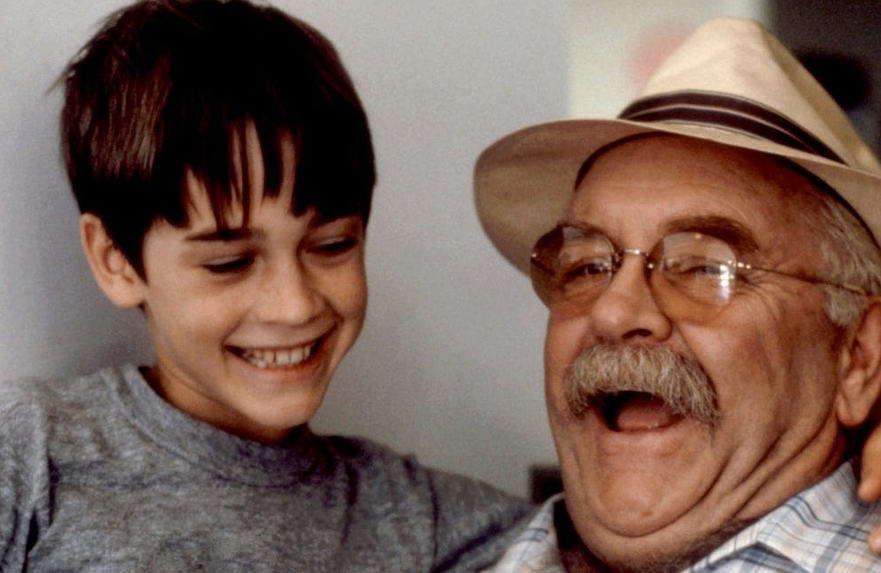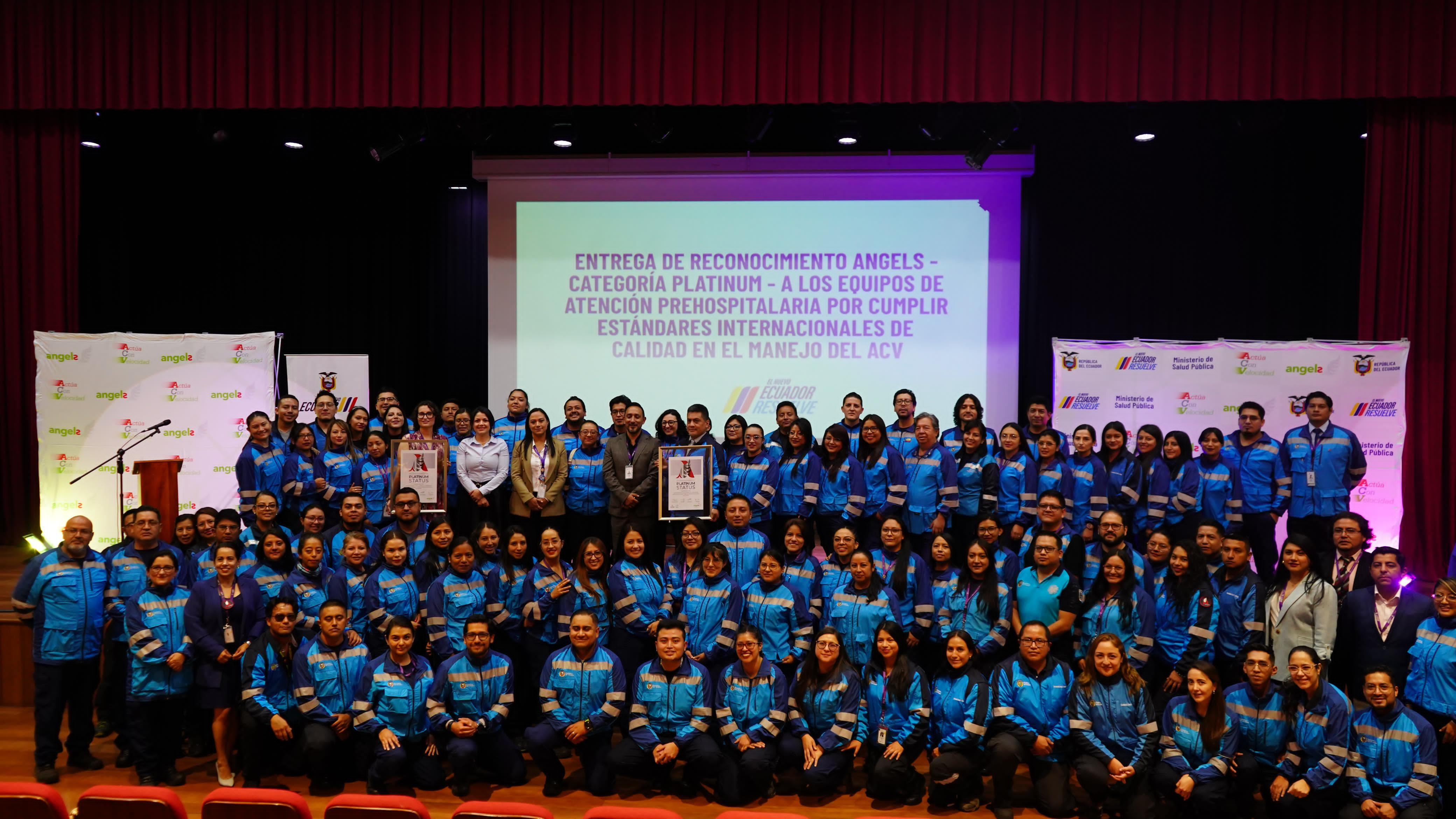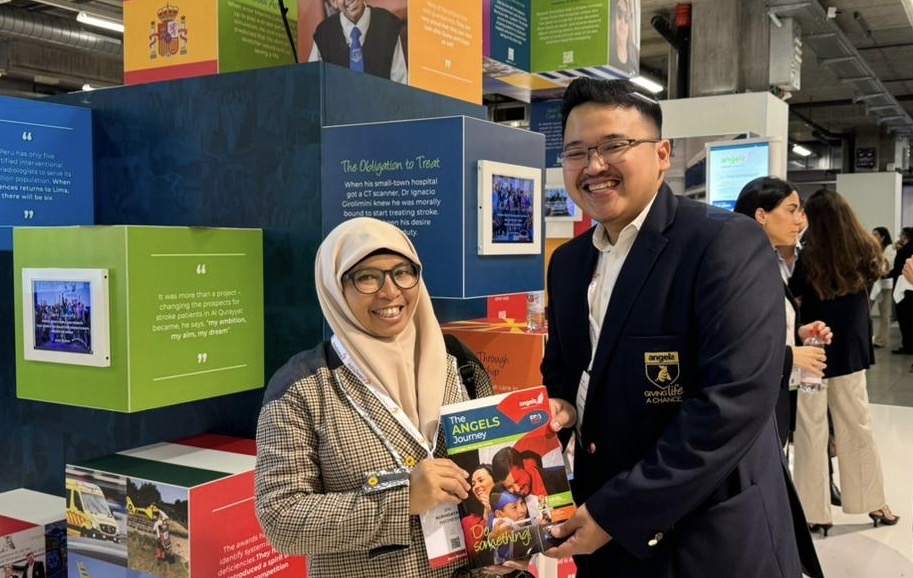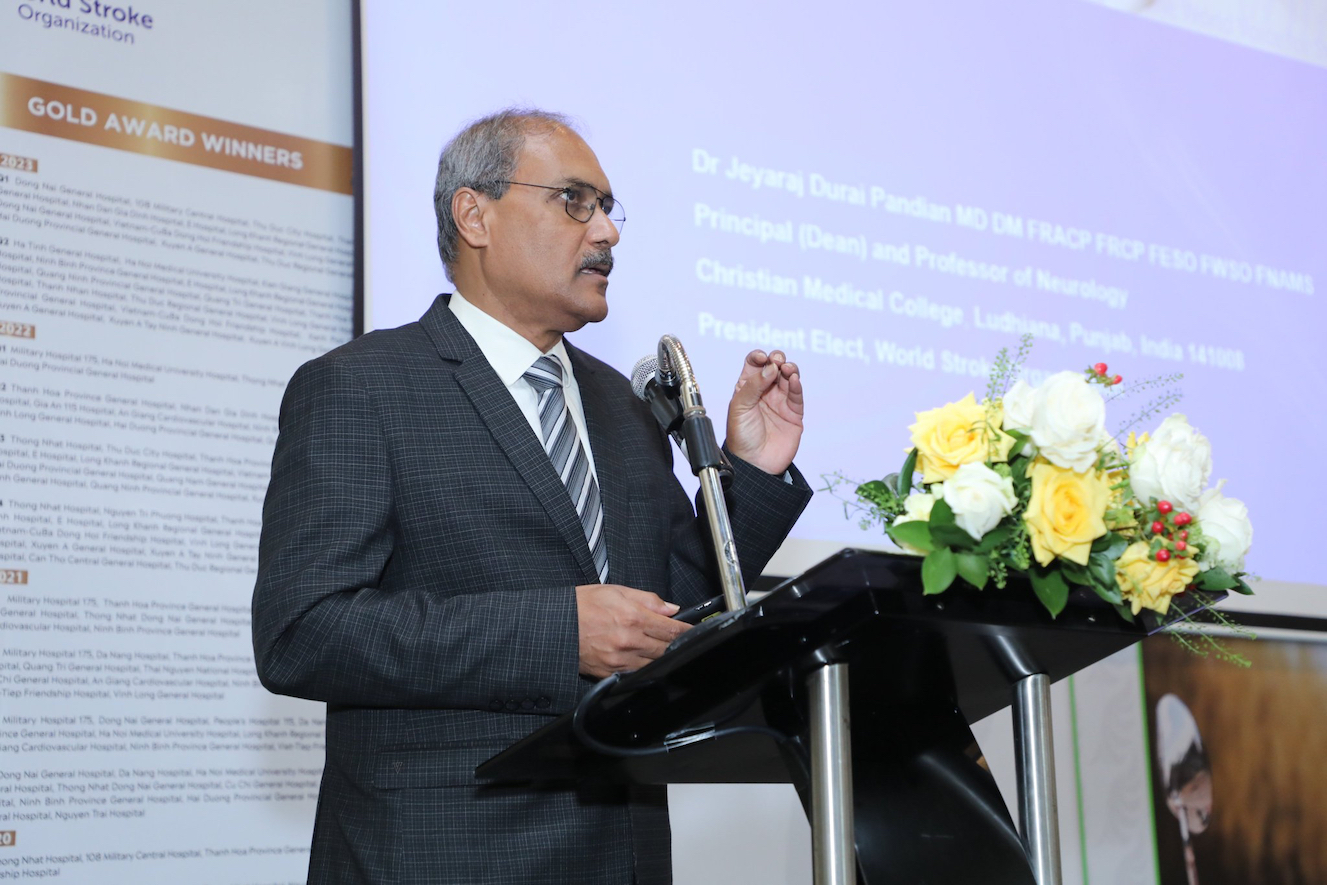
Есть история, которую доктор Джеярай Пандиан любит рассказывать, о женщине в ее сороках, у которой тяжелый инсульт частично парализован. У этой женщины была 20-летняя дочь, студентка первого года колледжа с многообещающим будущим, которая ушла из колледжа, чтобы стать опекуном своей матери.
Это история, возможно, не редко встречается в стране, где инсульт изменяет жизнь каждые 40 секунд, и 1,8 миллиона новых инсультов каждый год. Здесь, как и в других странах с низким и средним уровнем дохода (LMIC), инсульт может привести к тому, что семья станет бедной или лишит молодого человека своего будущего.
Однако эта история имеет большое значение, так как жертва инсульт была пациент д-ра Пандиана, и последствия для дочери женского студента колледжа привели его к силе. Это был момент, когда молодому невролог, работа которого при эпилепсии уже привлекла внимание всего мира.
В Индии уход за инсультными больными не был разработан, и хотя кто-то умер от инсульт каждые четыре минуты, и не было исследований высокого качества. Понимание влияния инсульт и инвалидизация на семью заставило д-ра Пандиана изменить свое внимание и установить для него путь, на котором он в конечном итоге решил стать президентом Всемирной организации по борьбе с инсультом (Всемирная организация по борьбе с инсультом, WSO).
Во-первых, этот путь приведет к Брисбену, Австралии и стипендии на инсульт в Королевской больнице Брисбена и женского госпиталя. Учитывая возможность остаться в Австралии, он, тем не менее, вернулся в Индию, где к тому времени был поставлен своей целью внести изменения в исследования уход за пациентом с инсультом и инсульт.
И, как всегда, путь ведет в Пенджабский город Лудхияна и его Кристианский медицинский колледж, который стал синонимом его карьеры. По словам д-ра Пандиана, переезд в Людхиана из Тамила Наду в сентябре 1990 г., когда он был новым квалифицированным врачом, был похож на переезд из одной страны в другую. Штат Пенджаб был новой страной с другой культурой и другим языком. Но там он был нарисован CMC Ludhiana долгая история кристианской этики и принципиально служил, начиная с 1894 года, как первая медицинская школа для женщин в Азии.
До 1953 года она стала ведущим учреждением медицинского образования для женщин. неврология отделение было добавлено в 1988 году, за два года до того, как молодой д-р Джейарай Пандиан хеджировал свое название — вначале в качестве исследователя при эпилепсии, в конечном итоге вырасти в 129-летнюю больницу в первый сертифицированный WSO инсультный центр Индии.
CMC Ludhiana не лечила острый инсульт до 2001 г., когда д-р Пандиан, начиная с визита в инсульт центры в США, создал свое первое инсультное отделение с тремя койками. В течение следующих трех лет только пять пациентов проходили внутривенный тромболизис, но все это изменилось после возвращения д-ра Пандиана из Австралии в 2007 г.
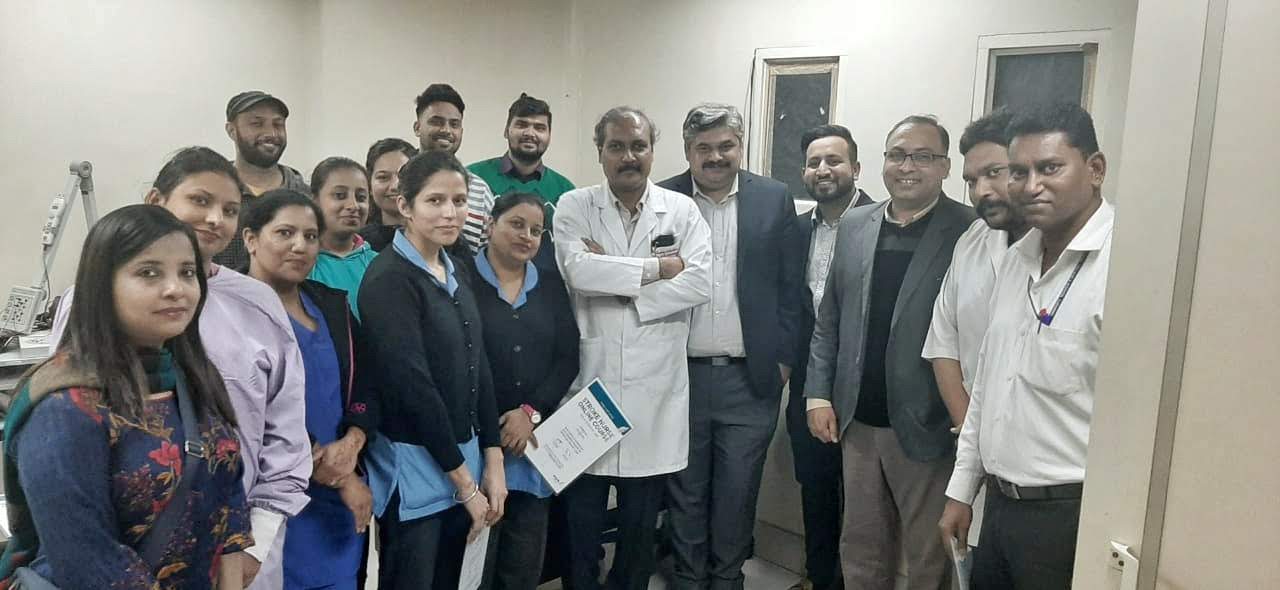
"Ложность, амбициозность, неутомимость, вовлеченность, прагматичность, щедрость, пациент и сотрудничество". Вот как наставник и компаньон исследования описывает д-ра Пандиан в научном профиле, который появился в журнале The Lancet Neurology в феврале прошлого года. Он очень гордится тем, что он был профилирован в ведущем в мире журнале клинической неврология, называя его наряду с престижной награда Глобальной службы по борьбе с инсультом, которую WSO присуждает ему в 2020 году.
Профиль исследований, а также почетные заслуги, включают в себя еще больше информации, которой можно гордиться, например, модели, разработанные для наблюдения и лечения инсульт, а также для инсульт отделений под руководством врач в сельской местности, и создание сети клинических исследований для расширения научно-исследовательских возможностей и решения проблемы инсульт в Индии.
Намного больше. В качестве президента Индийской ассоциации по борьбе с инсультом с 2021 года д-р Пандиан реализовала амбициозную программу профилактики, образования и сертификации инсульт центров. В качестве вице-президента WSO с 2018 г., его проекты включали работу с ВОЗ по реализации программы улучшения уход за пациентом с инсультом в Бутане, Мьянме и других странах Юго-Восточной Азии.
WSO, из которых он стал президентом в октябре 2024 г., так же является частью история доктора Пандиана, как CMC Ludhiana. В 2008 году, после возвращения из Австралии, он присоединился к совету директоров. Он был членом комитетов по политике и исследованиям WSO и возглавлял свою международную рабочую группу по проведению кампаний по борьбе с инсультом.
В 2016 г. он был сопредседателем Всемирного конгресса по борьбе с инсультом, который впервые проходил в Хайдарабаде, Индия. Мероприятие предоставило демонстрацию вклада Индии в мировое сообщество по борьбе с инсульт. Влияние работы д-ра Пандиана в регионе было невозможно пропустить. Что, наряду с его долгой ассоциацией с организацией, при выборе преемника проф. Шейлы Мартинса для руководства WSO удерживалась жесткая конкуренция. Он является первым президентом WSO, который приедет из Азии. Он говорит, что это "отлично для Индии и отлично для меня".

Под его руководством основное внимание будет уделяться уменьшению неравенства в уход за пациентом с инсультом, в частности, поскольку это влияет на Африку и Азию. За последние четыре десятилетия заболеваемость инсульт в группе LMIC увеличилась более чем на 100 процентов, в то же время снизилась на 42 процента в странах с высоким уровнем дохода за тот же период. Это будет частью его стратегии по обеспечению финансирования со стороны правительств и филантропов, чтобы помочь в борьбе с несправедливым распределением медицинского обслуживания и результатов. "Это мое видение", говорит д-р Пандиан, "и я постараюсь сделать как можно больше".
Когда он примет офис в октябре 2024 года, он станет более загруженным, чем когда-либо, поскольку стремится к балансу между своей новой ролью, своим деканом ХПК Лудхияной, где он также является профессором и главой неврология, своей работой в исследованиях, а также требованиями и удовольствиями от семейной жизни.
Уже почти 25 лет с тех пор, как 20-летний студент колледжа предупредил д-ра Пандиана о влиянии инсульт и инвалидизация на семьи и заставил его повернуться к инсульт. "Это был трудный путь, но я вижу награды за усердную работу", говорит он. "Оглядываясь назад, это очень приятный опыт".

